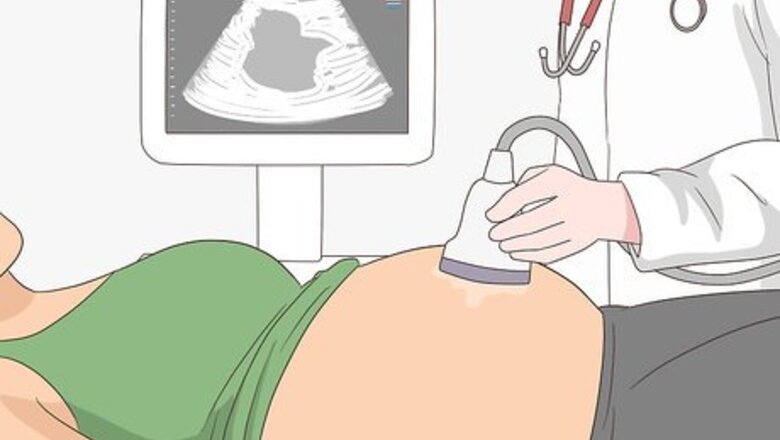
views
Medical Treatments
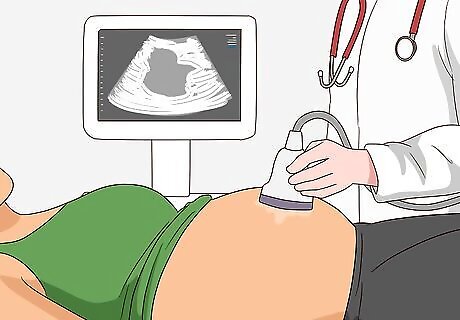
Get regular prenatal checkups to monitor your fibroids. If you already had fibroids before pregnancy, make sure to let your obstetrician know. They will examine your fibroids during routine ultrasounds and pelvic exams to check for any potential complications or changes in the size of your fibroids. Many women don’t discover they have fibroids until they get pregnant and have their first ultrasound. You may also develop new fibroids during your pregnancy.

Ask your doctor about using medications if your fibroids are painful. Abdominal pain is the most common symptom associated with fibroids during pregnancy. If your fibroids are causing you pain, talk to your doctor. They may recommend pain medications, such as indomethacin (a type of nonsteroidal anti-inflammatory drug).Warning: Abdominal pain during pregnancy can have many causes. While most abdominal pain during pregnancy isn’t any cause for concern, it can sometimes be a symptom of a serious complication. If you have abdominal pain and you’re not sure what’s causing it, call your doctor right away. Never take any pain medication during pregnancy without getting approval from your doctor first. Some medications may harm you or your baby. Your doctor might also recommend non-medical pain management techniques, such as massage, rest, support belts, or dietary changes.

Talk to your doctor if you experience bleeding during your pregnancy. In some cases, fibroids can cause bleeding during your pregnancy, especially if your placenta is located close to a fibroid. If you notice spotting or bleeding during your pregnancy, call your doctor. They can examine you to make sure the bleeding is not a sign of a more serious complication. Bleeding associated with fibroids is typically light and doesn’t usually cause any problems for the baby. Any heavy bleeding during pregnancy is a cause for concern. Call your doctor or go to the emergency room immediately if you have moderate or heavy bleeding, especially if it’s accompanied by cramps, fever, chills, or contractions.
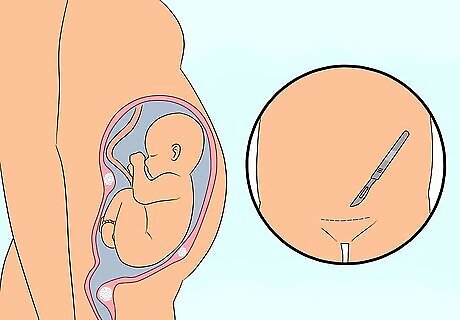
Be prepared for a cesarean section if your fibroids interfere with delivery. In rare cases, large fibroids can make it difficult for your baby to get into the right position for birth. A fibroid low in the uterus can also block the birth canal or interfere with the proper dilation of the cervix during childbirth. In those cases, a c-section may be necessary. Your doctor may be able to tell early in your pregnancy whether your fibroids are likely to interfere with delivery. Talk to your doctor about whether you may need to have a c-section.
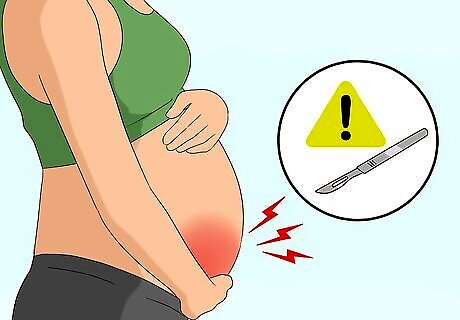
Discuss getting surgery if your fibroids are causing severe pain. Because of the risks to you and your baby, most doctors do not recommend surgery to remove fibroids during pregnancy. However, in very rare cases—for example, if your pain is extremely severe and doesn’t respond to other treatments—your doctor may consider surgical treatment. Some doctors also recommend surgery for fibroids that are growing very fast, since these can cause complications in pregnancy. If you do need surgery to remove your fibroids, you will likely need to wait until your second or third trimester to minimize the risk of complications. Keep in mind that your doctor will likely recommend you try going on bed rest, staying hydrated, and taking pain relievers before they decide to do surgery. You may find relief from these conservative treatments.
Risks and Concerns
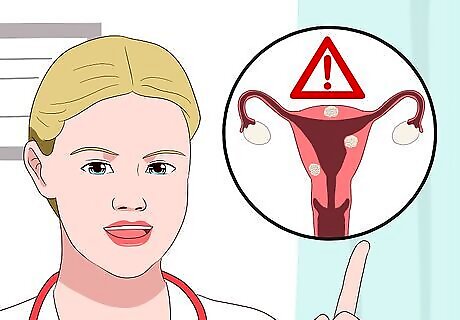
Talk to your doctor about how fibroids may affect your pregnancy. Not all fibroids are the same. Your risk of developing complications related to your fibroids will depend on factors such as how many fibroids you have, how big they are, and where they are located. Before worrying about what might happen, have a talk with your doctor about your fibroids and the potential problems they could pose during your pregnancy. They will likely be able to put your mind at ease! If there are concerns, you and your doctor can work together to develop a plan to deal with any problems that might come up.

Recognize the increased risk of miscarriage with fibroids. Unfortunately, fibroids can slightly increase your chances of having a miscarriage early in your pregnancy. The chances are a little higher if you have multiple fibroids or if the fibroids are located relatively high up in your uterus. If you are pregnant and have fibroids, talk to your doctor about how to recognize the signs of a possible miscarriage so you can seek appropriate medical care right away. If you’re not pregnant yet but are concerned about how fibroids might affect your fertility or the health of your future pregnancies, talk to your doctor about your treatment options before you start trying to conceive.
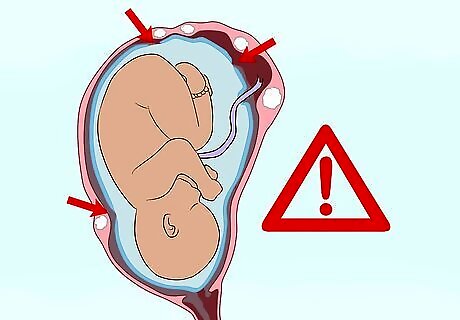
Ask your doctor if you’re at risk for preterm labor. Fibroids can also put you at risk of a variety of other complications, such as preterm birth or premature rupture of the membranes around the fetus. These risks may be higher if you have multiple fibroids or if a fibroid is close to or touching the placenta. Ask your doctor if they think you may be at risk of preterm labor and what you should do if you experience any symptoms of this complication.Talk about other possible serious complications, such as placental abruption (when the placenta partially or fully detaches from the wall of the uterus) or placenta previa (in which the placenta blocks the cervix). These conditions are both rare, but your risk may be slightly higher if you have fibroids. Ask your doctor if you are at risk for these conditions.
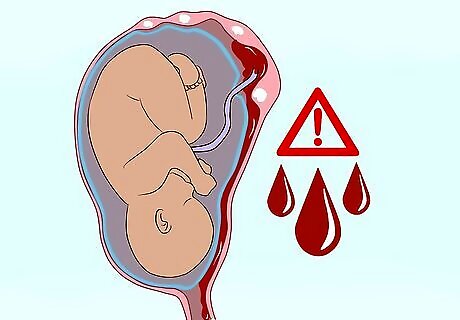
Discuss the potential for complications during delivery. In some cases, fibroids can cause problems during or immediately after delivery, such as excessive bleeding or difficulty delivering the placenta. If your doctor thinks you are at risk of any of these complications, they can make plans to prevent or manage these issues during your delivery. Having potentially risky fibroids doesn’t necessarily mean that you can’t have a home birth. However, if you do choose to deliver at home, make sure your midwife or attending physician is well-informed of your condition and has a plan in place in case there are complications.




















Comments
0 comment